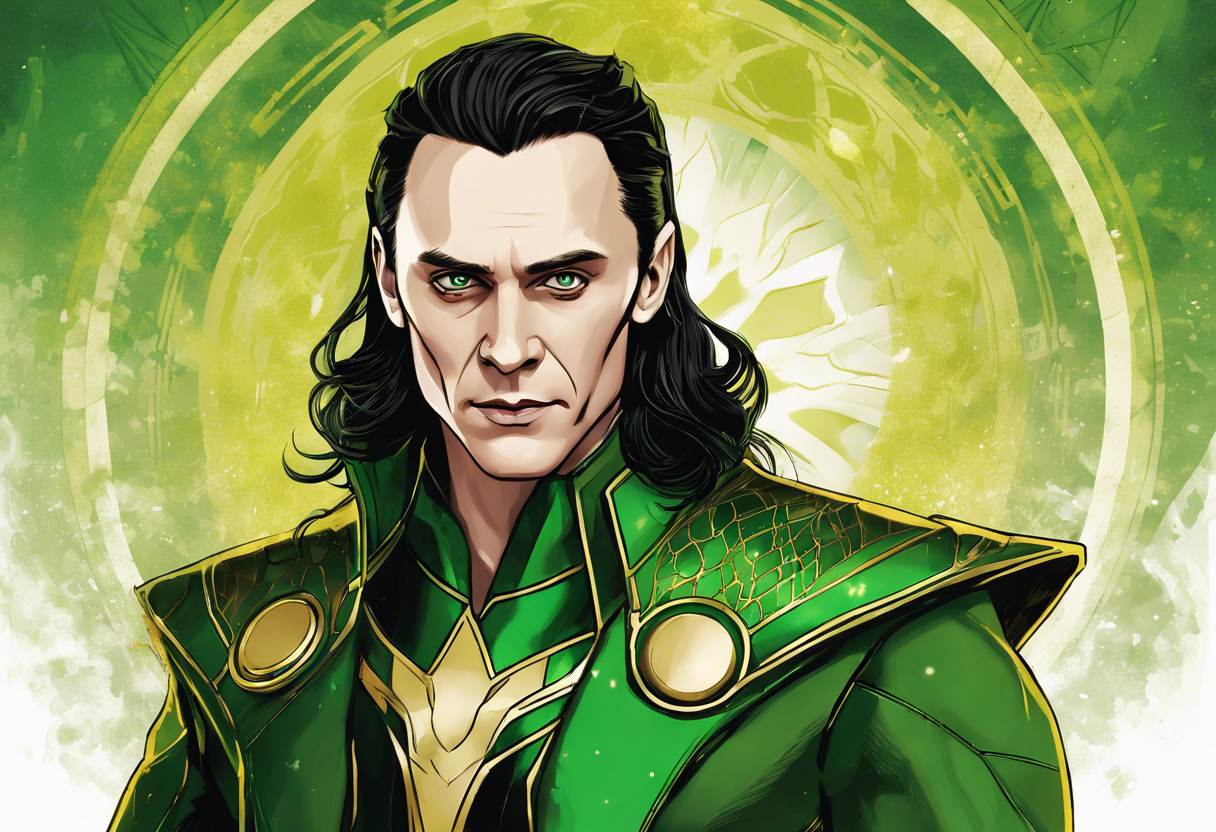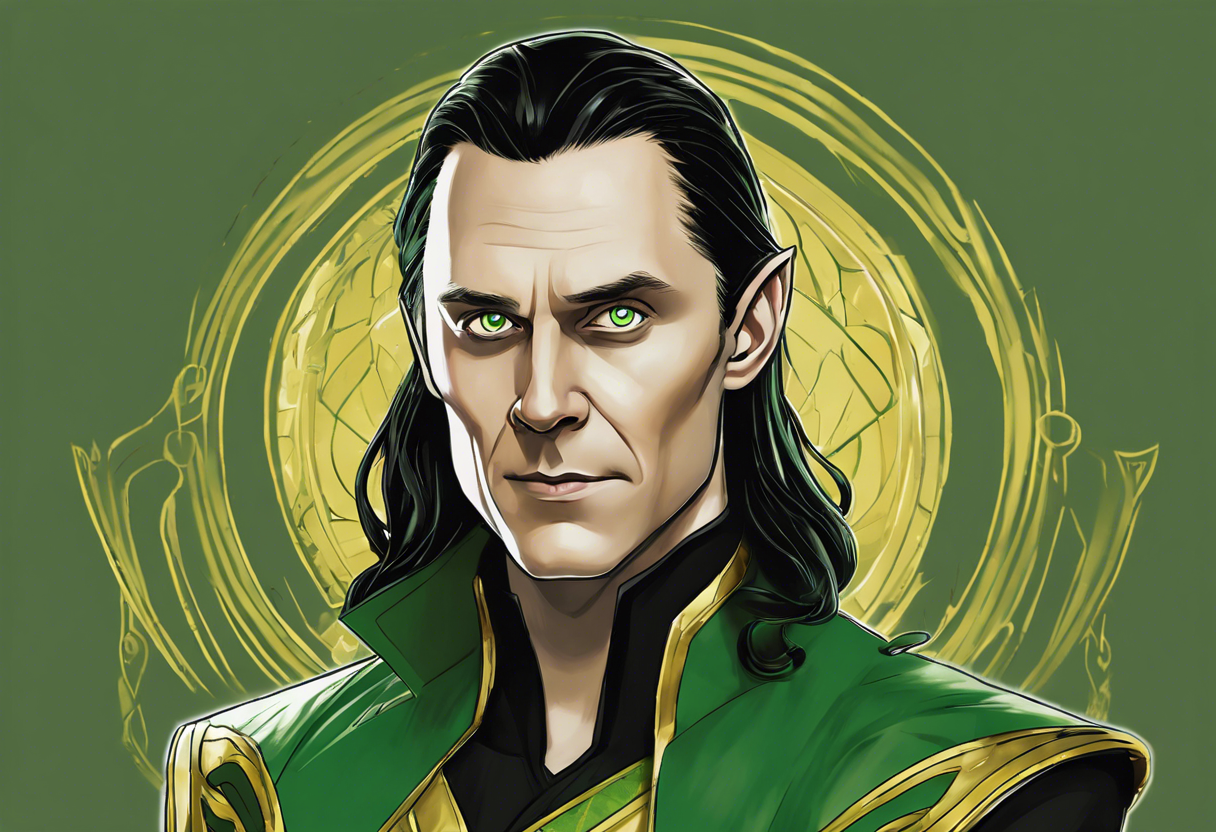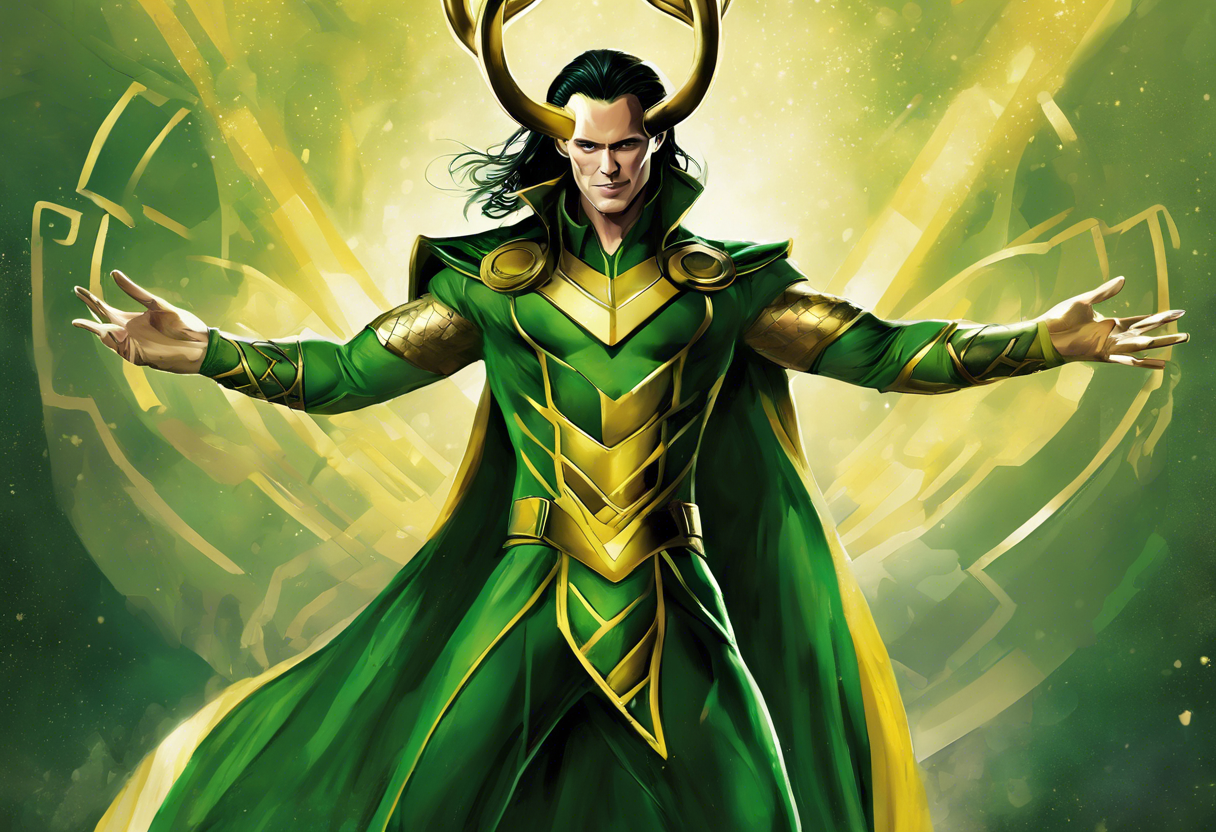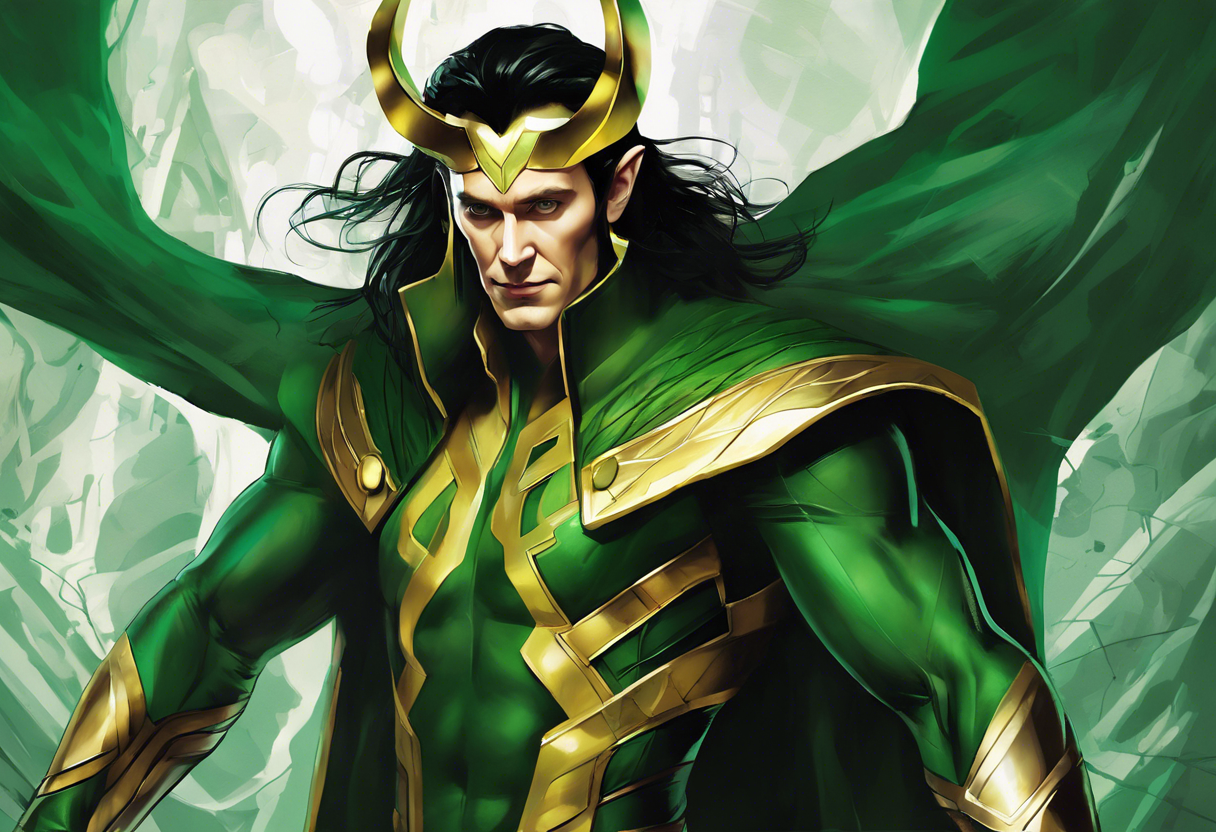Loki: The God of Mischief in the Marvel Cinematic Universe
Introduction
Loki, the complex and enigmatic character from the Marvel Cinematic Universe (MCU), has a rich and multifaceted history that spans both the cinematic world and the comic book universe from which he originates. Created by Stan Lee, Larry Lieber, and Jack Kirby, Loki first appeared in the comics in "Journey into Mystery" No. 85 in October 1962 as Thor’s arch-nemesis and adoptive brother[2].
In the MCU, Loki is portrayed by Tom Hiddleston and is introduced in the 2011 film "Thor" as the prince of Asgard, raised alongside his brother Thor by King Odin and Queen Frigga. However, Loki’s true parentage as the son of Laufey, the King of the Frost Giants, sets the stage for his tumultuous journey[2].
Loki’s defining traits include his exceptional intelligence, mastery of Asgardian magic and sorcery, and his penchant for manipulation and deceit. These characteristics make him a compelling and central figure in the MCU, often walking the fine line between villainy and anti-heroism.
Role in the Story
Loki’s storyline in the MCU is marked by significant conflicts and transformative events. Initially, he is depicted as living in the shadow of his brother Thor, feeling overlooked and undervalued by their father, Odin. This resentment culminates in Loki’s attempt to take the Asgardian throne for himself, leading to a series of events that result in his banishment and subsequent return as a supervillain[1].
In "The Avengers" (2012), Loki’s ambition to conquer Earth and subjugate humanity inadvertently leads to the formation of the Avengers. Despite his defeat and imprisonment, Loki continues to play a pivotal role, eventually replacing Odin as the ruler of Asgard before being killed by Thanos in "Avengers: Infinity War"[2].
However, Loki’s story does not end there. A variant of Loki from 2012, known as the "Loki" from the Disney+ series, is recruited by the Time Variance Authority (TVA) and embarks on a journey that sees him encounter various variants of himself, including a female variant named Sylvie. This narrative arc transforms Loki into a more heroic figure, ultimately leading to his sacrifice to maintain the multiverse[2].
Loki’s relationships with other characters are equally complex. His dynamic with Thor is particularly significant, as it oscillates between sibling rivalry and deep-seated affection. His interactions with Odin and Frigga also reveal the emotional depth of his character, highlighting his quest for parental approval and love[1].
Character Analysis
Loki’s personality is a tapestry of sensitivity, intelligence, and introversion, intertwined with a poor self-image that often manifests as spite, jealousy, and anger. He is shrewd and thoughtful, with a strategic mind capable of being both conniving and sly[1].
At his core, Loki struggles with feelings of inadequacy and rejection. His true identity as the son of Laufey, revealed by Odin, exacerbates these feelings, making him question his place in Asgard and his worthiness to rule[3].
Loki’s use of magic and manipulation serves as a coping mechanism for his fragile self-image. His ability to transform and create illusions is not just a display of power but also a reflection of his disjointed and immaterial sense of self. This fragility often leads him to seek validation through destructive means, causing harm to those he loves most[3].
Despite these flaws, Loki’s intelligence and resourcefulness make him a compelling character. His ability to adapt and evolve, particularly in his transition from a villain to an antihero, adds depth to his narrative and makes him relatable to audiences.
Themes and Symbolism
Loki embodies several themes that are central to the MCU. One of the most significant is the theme of identity and belonging. Loki’s struggle to find his place in Asgard, given his true parentage, resonates with audiences who have experienced feelings of not belonging or being misunderstood[3].
Another theme is the power of family and the complexities of sibling relationships. Loki’s dynamic with Thor highlights the challenges and rewards of familial bonds, especially when complicated by issues of jealousy and competition[1].
Loki also symbolizes the concept of duality—good vs. evil, truth vs. deception. His character often blurs these lines, making him a nuanced and intriguing figure. This duality is reflected in his role as both a villain and an antihero, showcasing the complexity of human (or Asgardian) nature[5].
Cultural Impact
Loki’s cultural impact is profound. His portrayal by Tom Hiddleston has made him a fan favorite, with many appreciating his complexity and depth. The character’s influence extends beyond the MCU, with Loki becoming a cultural icon symbolizing intelligence, cunning, and the struggle for identity[2].
In adaptations and spin-offs, Loki continues to captivate audiences. The Disney+ series "Loki" explores new dimensions of his character, introducing variants and delving deeper into his psychological landscape. This expansion has further solidified his place in popular culture, inspiring fan art, cosplay, and fan fiction[2].
Critical Reception
Critics and audiences have praised Loki for his complexity and the depth he brings to the MCU. Tom Hiddleston’s performance has been lauded for its nuance and emotional range, making Loki one of the most compelling characters in the franchise[2].
However, there have also been controversies and varying interpretations of his role. Some critics have argued that Loki’s character development is sometimes overshadowed by the larger narrative of the Avengers, while others have praised the MCU for giving him the screen time and depth he deserves[3].
Legacy
Loki’s enduring appeal lies in his multifaceted nature and the universal themes he represents. His journey from a villain to an antihero resonates with audiences on a deep level, making him a character with whom many can identify.
In contemporary discussions, Loki’s character continues to inspire reflections on identity, family, and the nature of good and evil. His influence can be seen in other works and character archetypes, where complex, morally ambiguous characters are becoming increasingly popular.
Loki’s legacy is a testament to the power of storytelling in the MCU, showing how a well-crafted character can transcend the screen and become a part of cultural discourse.





